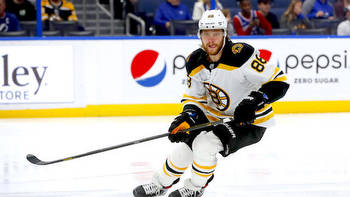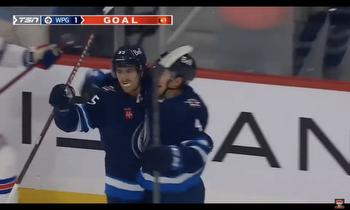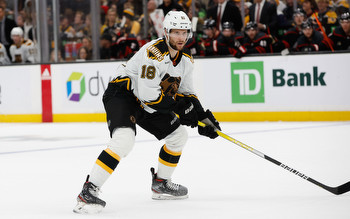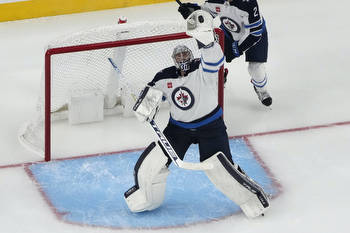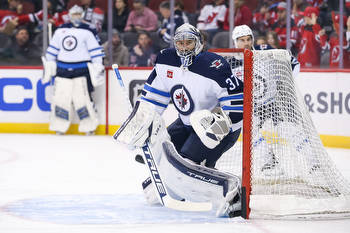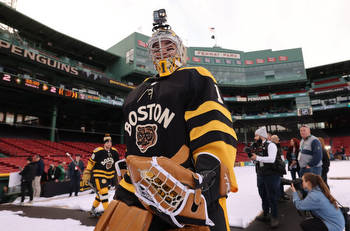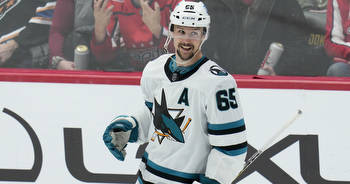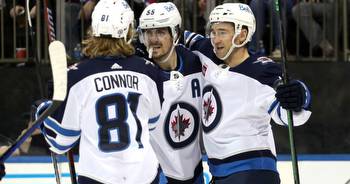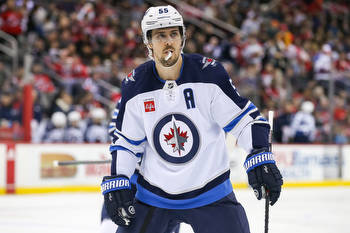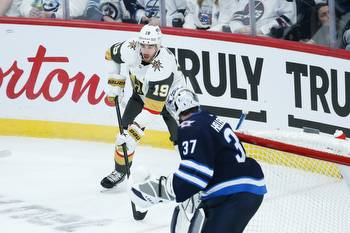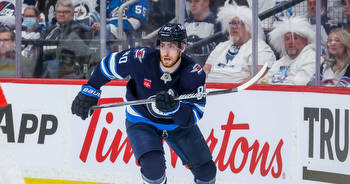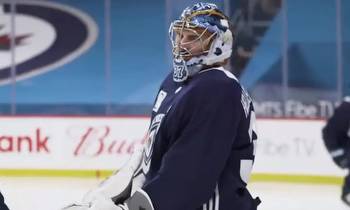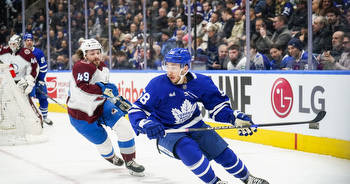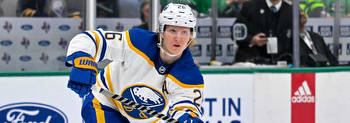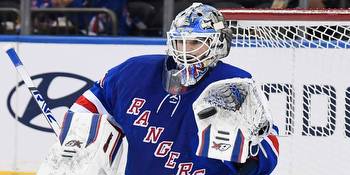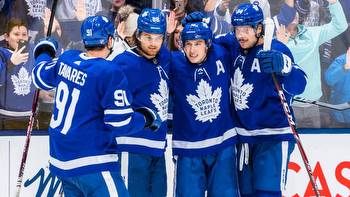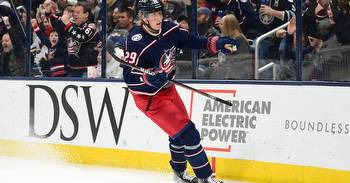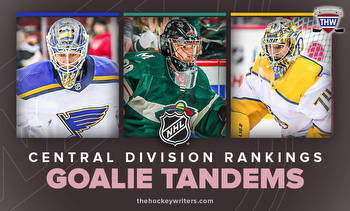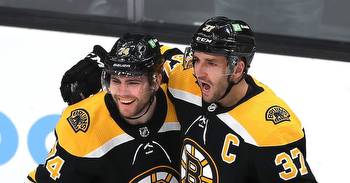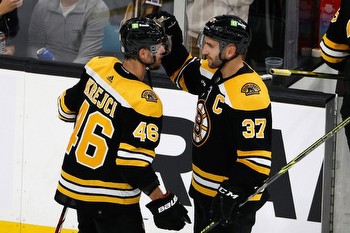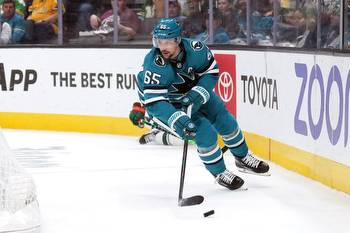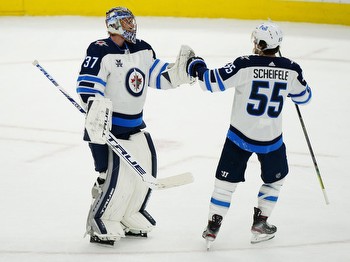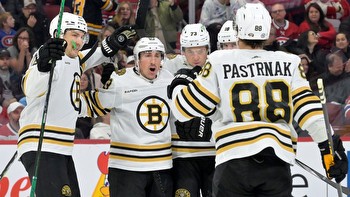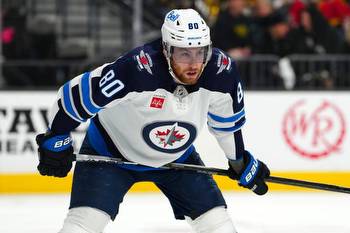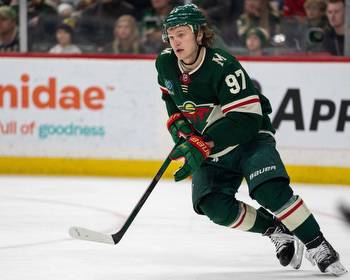5 NHL Teams Destined to Be Worse Next Season
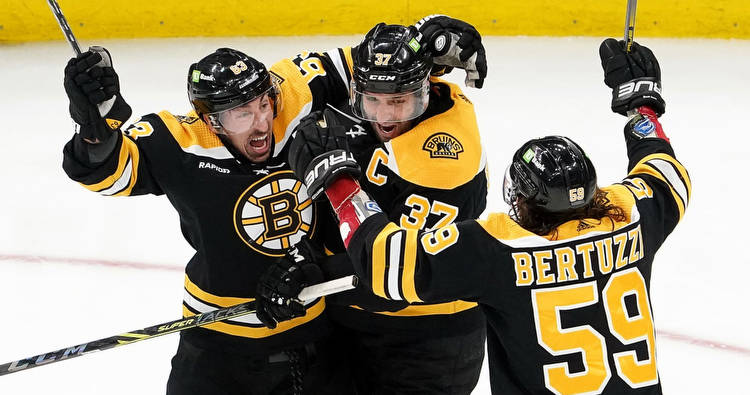
Every year there are always a handful of NHL teams that exceed expectations and end up being better than anybody thought.
But if somebody is getting better, that means somebody else is getting worse. Nobody ever stays the same.
This is going to focus on the teams that are destined to get worse for the 2023-24 NHL season.
It could be because of some significant departures, it could be because their 2022-23 season was the result of an unsustainable run of good luck, or it could just be because they made the wrong moves this offseason.s
Either way, and no matter the reason, these five teams should prepare themselves for a worse performance this season.
Picking the Bruins to be worse this season is definitely picking at some low-hanging fruit.
But it is also a reality. Maybe a harsh reality for Boston fans.
No matter what this team did this offseason there was never going to be a path for them to have a better season than the 65 wins they put on the board during the 2022-23 season. It's just not going to happen.
But Adam, you are probably screaming at your screen, what if they win fewer games during the regular season, but do better in the playoffs?! Wouldn't that be a better result -- and the desired result -- for the 2023-24 season?
Well, yes. It would. But that is probably not likely to happen, either.
For one, the Bruins have lost a lot of talent off of that 65-win roster. Trade-deadline rentals Tyler Bertuzzi and Dmitry Orlov moved on to free agency. Top-nine forwards Taylor Hall and Nick Foligno were traded in a salary-cap dump trade to Chicago. Those four departures alone would be a problem for the Bruins. But they might not be the only departures.
There is no guarantee that top centers Patrice Bergeron and David Krejčí will return, and if they don't that is a massive blow to the Bruins' chances. Not only were they two of the best players on the roster this past year, there is no way that Boston could replace them and get equal value for the combined salary cap hit Bergeron and Krejčí played under last season.
Then there is the potential regression from the goalies. Linus Ullmark and Jeremy Swayman might very well be a strong duo again, but it is very unlikely that Ullmark duplicates his performance. In the salary cap era, only nine goalies have ever finished a season with at least 45 games played and a save percentage of .930 or better. Those goalies saw an average drop of 15 points in their save percentage the next season. That is huge.
If Bergeron and Krejčí return, the Bruins will be marginally worse just based on common sense and standard regressions. If neither returns, the Bruins might be significantly worse.
In some ways, the Jets probably overachieved during the 2022-23 season just to make the Stanley Cup Playoffs.
It was a very forgettable trip once they got there and there isn't much reason that things are going to be better next season.
The Jets already parted ways with two significant offensive players this offseason by trading Pierre-Luc Dubois and buying out Blake Wheeler.
While they did well in the Dubois trade in terms of value, (landing Alex Iafallo and Gabriel Vilardi as part of the package) they didn't really add a difference-maker to the roster beyond that. They also have largely the same core returning that has done nothing but produce mediocre results for most of the past decade.
There are some good players here, with Kyle Connor, Mark Scheifele, Nikolaj Ehlers and Connor Hellebuyck at the top of the roster, but there isn't enough around them to help out.
Even worse, Scheifele and Hellebuyck are both in the final year of their current contracts and there does not seem to be much progress in keeping them beyond this season. That means both should be considered on the trade block.
All of the Jets' success or failure is based around Hellebuyck being a game-stealer in net and their top three or four forwards carrying the offense. If all of that clicks, they have a chance to be a fringe playoff team. If it doesn't, they don't have much of a chance. If it reaches a point where Hellebuyck or Scheifele get traded, (either before the season or during it) then those chances get even slimmer.
The Flyers were already a bad team during the 2022-23 season and they might be setting themselves up to be even worse this year.
And not just a little bit worse, either.
This might be the worst roster in hockey and an early favorite for the top lottery odds in the 2024 NHL Draft.
They traded one of their top forwards, Kevin Hayes, they traded their top defenseman, Ivan Provorov, and they mostly did nothing to add to the roster in the short-term this offseason.
The trades of Hayes and Provorov are also probably not going to be the last major moves this new front office makes to try and rebuild from the messes that were the Ron Hextall and Chuck Fletcher eras.
Injuries have decimated a lot of the veteran core the Flyers were counting on in recent years, specifically as it relates to Sean Couturier, Cam Atkinson and Ryan Ellis, but even if they were healthy they aren't changing much at this stage of their careers.
Maybe they get some better injury luck this year. Maybe Carter Hart has a big season in goal. And maybe some of their young forwards like Joel Farabee or Noah Cates take a big step forward. But the more "maybe" and "if" situations you add to a team the more likely it is that some of them are not going to go your way.
This was already a bad roster, it managed to get worse this offseason and even though John Tortorella seems to have a way of squeezing out a few extra points from bad rosters, he isn't going to be able to work miracles here. The Flyers were a 75-point team a year ago and they might be lucky to be a 65-point team this season. Start looking at draft prospects, Flyers fans.
The Wild did a fantastic job making the best out of a brutal salary-cap situation last year, topping the 100-point mark and still putting themselves in a position to make some significant additions at the trade deadline.
But the cap situation isn't getting any better and that is going to be the main thing that holds them back over the next couple of seasons.
Due to the buyouts for Zach Parise and Ryan Suter, the Wild have more than $14 million in empty salary-cap space on their books, severely limiting their options for improving the roster.
It has also cost the Wild significant players, including Kevin Fiala and veteran defenseman Matthew Dumba. They also haven't really been able to add much this summer.
While the Wild do have some star-level players on their roster, including the top-line duo of Kirill Kaprizov and Mats Zuccarello, as well as an emerging star in Matthew Boldy, there is not a ton of depth around them. At least not enough to put them on a similar level with other top contenders in the Western Conference.
The other potential red flag with this year's team is that a lot of their success last year was dependent on the play of goalie Filip Gustavsson. The Wild acquired Gustavsson from the Ottawa Senators in a one-for-one goalie swap that saw Cam Talbot go the other way.
It not only turned out to be a huge win for the Wild, it was one of the most lopsided trades of last year's offseason. Gustavsson saw everything come together for him as he took over the Wild's starting goalie job and had one of the best individual goalie performances in the league.
But how confident should the Wild be that he can come close to matching that .930 save percentage again?
It is a huge ask and probably an unreasonable one.
If he regresses, combined with the salary cap situation continuing to limit the Wild's ability to add to the roster, this is a team staring at a potential significant regression. Especially in a division that has contenders Colorado and Dallas at the top of it.
The Predators are starting to usher in a new era with Barry Trotz taking over as general manager for David Poile and Andrew Brunette calling the shots behind the bench.
There is a lot to like about all of that.
The front office has been aggressive in clearing salary and accumulating draft picks, while Trotz seems to have the right mindset in what he is looking for in players, urging his scouts to swing for the fences in trying to land stars.
All of that is great.
But it is going to take time to put all of that into practice at the NHL level.
In the short term, this roster still needs a lot of help.
The Predators did make a couple of solid veteran additions in free agency by signing Ryan O'Reilly and Gustav Nyquist, but they aren't the players they were a few years ago. Nashville has also seen a lot of talent leave the organization over the last calendar year with Mattias Ekholm, Tanner Jeannot, Nino Neiderreiter, Ryan Johansen and Matt Duchene all being traded or bought out.
They also have just 10 players under contract beyond this season, while more trades could be on the horizon.
Nashville has been a team that has needed everything to go their way and fall perfectly into place just to have a chance to be a fringe playoff team or just barely miss. That is this current group's best ceiling.
There might be a strong plan and vision in place. But this team is a long way from seriously competing. If it even manages to hang around in the Western Conference playoff race this season, it should be considered a success.
.jpg)
